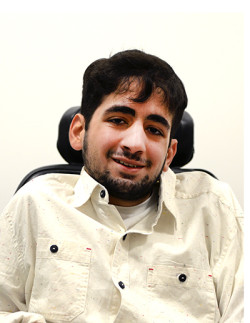If you go to GW and have a Twitter account, there’s a pretty good chance you’ve seen Dean of Student Affairs Peter Konwerski’s tweets asking students to submit ideas for this year’s Commencement speaker.
There are many big names being tossed around, including politicians like Hillary Clinton and Condoleezza Rice, entertainers like Lena Dunham and Kevin Spacey, and media personalities like George Stephanopoulos and Rachel Maddow.
But the truth is, a speech by a celebrity might never truly speak to experiences most of us will have in the professional world.

The reality is – sorry to offend my fellow students with big dreams – the vast majority of us are never going to be movie stars, the president, Nobel prize-winners or Fortune 500 CEOs. More likely, we’ll be the people behind these figureheads doing the hard work. And there’s something noble about that.
That’s why the best Commencement speaker would be a person many of us have never heard of who can more accurately reflect the type of lives 99 percent of us will lead.
The conventional wisdom goes that Commencement speakers are supposed to be larger-than-life figures, inspirations rather than aspirations. But we may be looking at this the wrong way.
Instead of trying to bring in a big name, let’s hear from a more average individual – say, a lesser-known congressional speechwriter or lab assistant in a medical facility.
These are the types of people and work we will see in our own futures – at least right out of college. There’s something to be learned from an individual whose job it is to make someone else look good. It is their diligence and expertise that’s responsible for making our idols the iconic figures that they are. And a lesson in humility can go a long way at GW, where our marketing is quick to suggest that “a stroke of genius can become a stroke of the president’s pen.”
Every year around this time, the University is abuzz with who should come speak. I weighed in on this topic last year, recommending alumnus Glenn Greenwald give the address. And like clockwork, it seems there’s an inevitable swarm of disappointment once the speaker is announced, only to be followed by praise once the speech is given.
Case in point: In the last few years, GW tried to change things up by going outside the beltway and bringing in Kerry Washington and José Andrés to speak in 2013 and 2014, respectively.
Students were skeptical about both speakers’ ability to convey a message relevant to them. And each time, everything turned out OK: Washington, an alumna, made the audience laugh with references to her favorite places on campus, and Andrés generated social media buzz with a video of big-name celebrities declining GW’s invitation and suggesting Andrés instead.
But when you think about it, the purpose of Commencement is to get a degree in front of family and friends. The speaker is only a perk.
There’s an important difference between booking a headliner like high-profile comedian Seth Meyers for Colonials Weekend and picking a speaker for graduation. On parents weekend, the University is looking to sell tickets to fill the Smith Center and rally a crowd. But people will attend Commencement in droves no matter what because it’s geared toward celebrating students, not a celebrity.
Of course, there are a couple benefits to being able to pull in a big name for Commencement: It could inspire donations to GW or serve as a selling point for prospective students. But there’s a chance that new students and potential donors alike might actually find it refreshing that the University would value bringing in a speaker with a more realistic and applicable message, and it would set GW apart from its competitors. Besides, students who are inspired by practicality instead of dazzled by a celebrity are the types of people we should be recruiting anyway.
There’s just one exception: If Konwerski and the committee choosing the speaker can lure Beyoncé to the National Mall come May, then I’m all for it.
Jaggar DeMarco, a junior majoring in political communication, is a Hatchet columnist.





